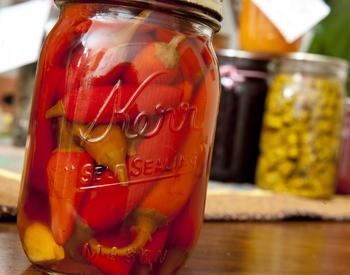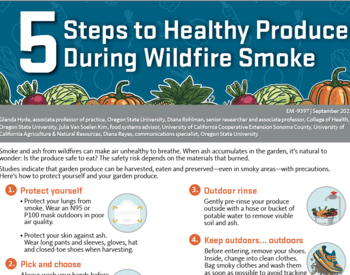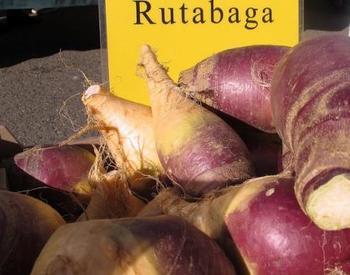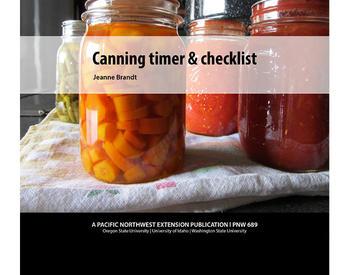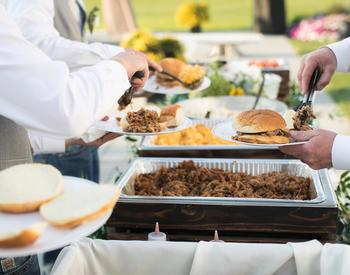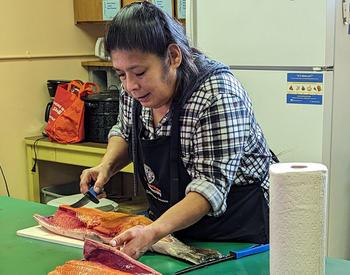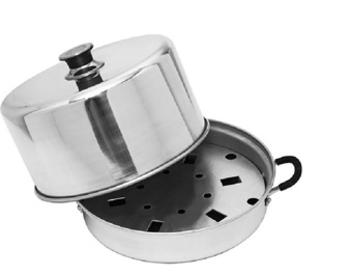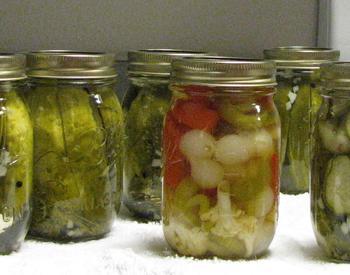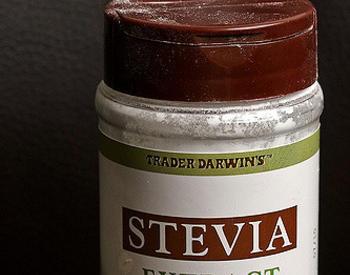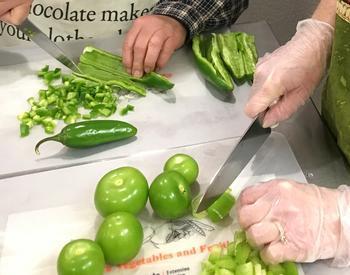Download this article as a PDF
We can prevent food waste and foodborne illness by making the right decisions about refrigerated food storage.
What foods need to be refrigerated?
Refrigerate these foods to keep them safe to eat
- Cooked low-acid, high-protein, moist foods: Foods such as those listed below are a perfect haven for bacteria that cause food poisoning. Refrigeration prevents growth of most of them.
- Cooked meat, poultry, seafood and foods made from them (soups, casseroles, pot pies, lunch meat, hot dogs).
- Cooked eggs and egg products (custard, quiche, cream pie).
- Potato and pasta salads, pizza, gravy, stuffing, cooked vegetables.
- Vacuum-packaged meat, seafood, vegetables: Clostridium botulinum bacteria can grow in these foods. Refrigeration slows growth and toxin production.
- Smoked seafood: A strain of Clostridium botulinum unique to seafood grows slowly at refrigerator temperatures. These products should not be refrigerated longer than 2–3 weeks.
- Homemade raw or cooked garlic and/or herbs in oil: The mixture must be refrigerated and used within 4 days. Freeze for long-term storage.
Refrigerate these foods to maintain high quality as well as safety
- Raw eggs; raw meat, poultry, seafood: Cold temperatures maintain quality of raw animal products. Bacteria such as Salmonella and Listeria grow in the intestinal tracts of animals, so it is important to cook refrigerated animal foods thoroughly before eating.
- Nuts, dried fruit: Mold can grow on these products. Refrigeration slows the growth of toxic mold.
- Dairy products (e.g., milk, yogurt, hard cheese): The quality of dairy products deteriorates rapidly when they are left at room temperature.
The dates on cartons are quality indicators. Dairy products will be tasty and safe to eat beyond the date if they have been handled properly.
Refrigerate these foods to maintain quality
Although these foods can be safely stored at room temperature, they’ll stay top quality longer in the refrigerator.
- Fresh fruits and vegetables.
- Condiments (mustard, ketchup, relish, pickles, mayonnaise).
- Fats, oils, salad dressing, shortening.
- Syrup, jam, jelly.
- Peanut butter.
- Whole grains.
- Ground coffee.
Do not refrigerate these foods (refrigeration affects quality)
- Honey: Sugar crystals will form.
- Raw potatoes, mature onions, winter squash: Refrigeration causes undesirable changes in quality (such as flavor). Store at 60ºF.
- Bread: Bread stales more quickly at refrigerator temperatures. Freeze it instead.
How long can foods be kept in the refrigerator?
With the exception of smoked fish and garlic/herbs in oil mixtures, length of refrigeration is not a good index for judging safety of refrigerated foods. Charts that show recommended storage times for refrigerated food are actually just a guide to eating quality. If properly handled, refrigerated foods will still be safe to eat until they show changes in quality: off-odor, mold growth, sliminess.
PLEASE NOTE: A cold-tolerant strain of Clostridium botulinum will grow in lightly smoked fish and other smoked seafood at refrigerator temperatures. These products should not be stored in the refrigerator longer than three weeks. Flavored oils and pesto should not be stored more than 4 days.
The safety of moist, high protein foods depends on how they were handled before refrigeration:
- Prepare them with clean hands, utensils, and work surfaces (especially after handling raw meat, seafood, poultry, eggs.)
- Cook meat, poultry, seafood and eggs thoroughly.
- Do not leave perishable foods at room temperature longer than 2–3 hours.
Source: OSU Master Food Preservers Program
